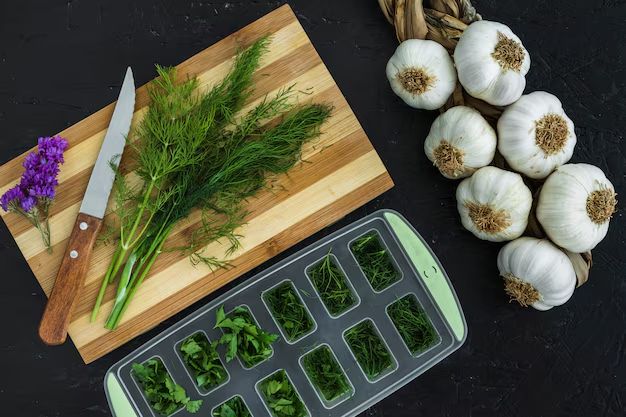A Fresh Look at Onion Storage: How Long Can You Keep Onions in the Refrigerator?
When it comes to food storage, understanding how long produce stays fresh can be a game-changer. 🧅 Onions are kitchen staples, adding flavor and depth to countless dishes. However, knowing the shelf life of these pungent bulbs is crucial to avoid wastage and ensure food safety. So, how long can onions last in your refrigerator, and what are the best practices for storing them? Let’s dive into the world of onion storage to keep your kitchen not just tasty, but also efficient.
The Basics of Onion Shelf Life
Whole Onions vs. Cut Onions
Whole onions, when stored properly, can last a surprisingly long time outside the refrigerator. Keeping them in a cool, dry, and well-ventilated space like a pantry can sustain their freshness for up to several weeks or even longer.
- Whole onions: Generally, they are best kept at room temperature, but if your kitchen is warm or humid, you might consider refrigerating them. In the refrigerator, whole onions can last a few months.
- Cut onions: Once an onion is cut, its shelf life decreases significantly. In the refrigerator, cut onions should be used within 7 to 10 days for optimal freshness and safety.
Refrigeration and Its Impact
Refrigerating onions can extend their usable life, but it can also impact their texture and flavor. Cold temperatures can make the flesh softer over time, and moisture can hasten spoilage. Hence, proper storage techniques are essential.
Best Practices for Onion Storage
Storing Whole Onions
To maximize the shelf life of whole onions in the refrigerator, follow these guidelines:
- Leave the skin on: The skin acts as a natural protective barrier against pests and bacteria.
- Avoid plastic bags: Use mesh bags or breathable containers to allow proper air circulation. Lack of airflow can trap moisture, leading to mold and spoilage.
- Keep them cool and dry: A temperature range of 30°F to 50°F is ideal for storage.
Storing Cut Onions
Once you've cut into an onion, the storage strategy changes:
- Use a sealed container: Place cut onions in airtight containers or tightly wrap them in plastic wrap to prevent them from drying out and absorbing other odors in the fridge.
- Label with dates: Always label stored onions with the date they were cut to keep track of their freshness timeline.
- Avoid excess moisture: Pat the sliced or chopped onions dry before storing them to minimize bacterial growth.
Spring and Green Onions
Spring onions and green onions, often confused with each other, both require special storage methods:
- Refrigerate immediately: They should be stored in the refrigerator's crisper drawer to maintain freshness.
- Wrap in damp paper towels: This prevents them from wilting too quickly.
- Use plastic bags: Store them in perforated plastic bags for optimal moisture levels.
Signs Your Onions Are Past Their Prime
Knowing when an onion is no longer good to use is as important as knowing how long they last. Here are common signs to watch for:
- Soft spots: If onions become mushy or have soft spots, it’s time to discard them.
- Sprouting: While sprouting is natural, it indicates that the onion is past its prime. However, you can still use the non-sprouted part if there's no rotting.
- Mold or discoloration: Any signs of mold, a sour odor, or discoloration mean the onion should be thrown out.
Related Subtopics: Optimizing Kitchen Storage
While understanding onion storage is valuable, a holistic approach to kitchen efficiency can be beneficial. Here are some complementary tips:
Storing Similar Produce
Many kitchen staples share similar storage needs, and understanding these can optimize the freshness of your pantry:
- Garlic: Similar to onions, garlic should be stored in a cool, dry place. In the refrigerator, garlic can last for several weeks, but keep it ventilated.
- Potatoes: Store potatoes in a cool, dark place, not in the refrigerator, as refrigeration can alter their texture and flavor.
Understanding the Ethylene Effect
Ethylene is a natural gas emitted by some fruits and vegetables that can cause nearby produce to ripen (or spoil) faster.
- Separate storage: Keep onions away from ethylene-producing produce like bananas and apples to enhance longevity.
- Mixed produce bags: Don't mix onions with certain fruits in storage to prevent premature spoiling.
Helpful Tips to Keep Onions Fresh
Here's a quick guide to help you remember the best practices for onion storage:
- 🧅 Whole onions prefer it dry: Keep them in breathable containers or bags.
- 📦 Seal in the freshness for cut onions: Use airtight contraptions to maximize their life.
- 🌡️ Cool and stable temperatures: Maintain a consistent environment for storage.
- 👀 Check regularly for spoilage: Prevent contamination by inspecting onions routinely.
Conclusion: Maximizing Onion Longevity in Your Kitchen
Understanding how long onions last in the refrigerator and learning the best storage practices is key to maintaining a fresh and efficient kitchen. Not only does proper storage preserve flavor, but it also ensures you're using ingredients safely. Whether adjusting the storage of whole onions or finding the perfect way to handle cut veggies, these strategies empower you to make the most of your produce. Enjoy the full potential of your onions by following these straightforward tips, and savor every aroma they bring into your home cooking.

